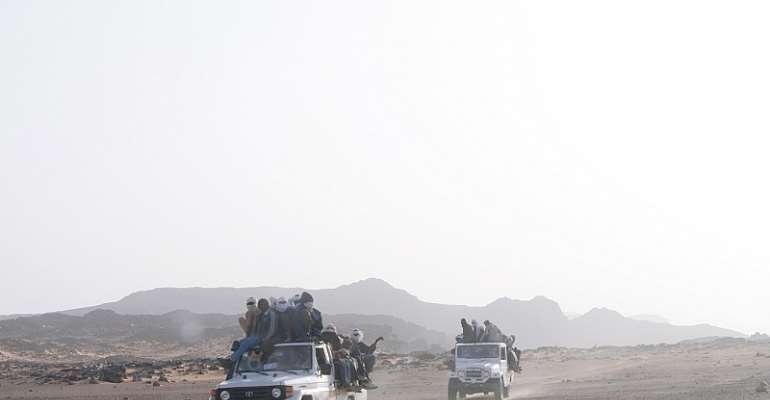Chad: Defusing Tensions in the Sahel

Growing discontent among young people in Chad’s Sahel regions risk driving them into the arms of rebels in neighbouring countries. Authorities should end the impunity of individuals guilty of a range of abuses and distinguish between economic migrants and potential rebels.
What’s new? Anger at the state is rising among youth in Chad’s Sahel regions of Bahr el-Ghazal and Kanem. Impunity for abuses committed against locals and the authorities’ treatment of all young people leaving for Libya – many of whom simply seek economic opportunity – as potential rebels are fuelling discontent.
Why does it matter? Worsening relations between young people in those regions and the authorities, combined with the economic downturn, risk aggravating the very trend that authorities fear – the reinforcement of rebels in neighbouring countries, particularly southern Libya.
What should be done? To rebuild trust with youth from these regions, Chadian authorities should avoid conflating migrants with those joining rebels. This requires maintaining security controls but ensuring they do not curtail people’s freedom of movement. They should also hold accountable those guilty of abuses, irrespective of their political ties.
Executive Summary
Since 2016, tensions have risen between young people in Chad’s central regions of Bahr el-Ghazal (BEG) and Kanem and the government. Friction is fuelled by Chad’s economic crisis and a series of abuses perpetrated against citizens in these regions by individuals close to the inner circles of power. The perceived impunity of those responsible has left many young people deeply humiliated. Restrictions on the movement of people from those regions, many of whom travel north and to Libya to find jobs, also exacerbate resentment. Growing anger at the state could empower rebel movements in neighbouring countries. To regain the trust of young people in BEG and Kanem, Chad’s authorities should demonstrate they can prosecute and punish those guilty of abuses, even those with powerful connections. They should avoid treating all migrants as potential rebels and ease restrictions on people’s movement. With donors’ help, the government should work to revive the economy of a region haemorrhaging young people who seek opportunities elsewhere.
With international attention in Chad focused on Boko Haram and ongoing conflicts in the northern Tibesti mountains between the Chadian army and Tebu (Teda) militias, the country’s central regions, including the semi-desert BEG and Kanem in the Sahel, have largely been ignored. The history of those regions diverges from that of other parts of Chad. While no local rebellion has ever gathered momentum there, those regions did contribute many fighters to different armed groups during the civil wars of the 1970s and 1980s. Even today, rebel Chadian forces based in southern Libya include several thousand combatants from Kanem and BEG. For some youth, joining such groups is less about gaining power than about improving their status in acutely unequal societies.
Following colonial practice, successive governments in N’Djamena have long supported local elites to maintain control over volatile regions. In BEG, economic and political elites from the Kreda – the region’s largest ethnic group – enjoy a privileged relationship with the state and actively promote or represent the ruling party. But over recent years, mounting discontent among young people increasingly drowns out their leaders’ appeals for calm.
BEG and Kanem citizens have recently been targeted in serious incidents involving individuals perceived to well-connected. These included the widely reported rape of a Kanem girl by sons of Chadian dignitaries and an armed assault on a convoy of prisoners from these regions by forces from the president’s Zaghawa ethnic group. While some of those responsible were prosecuted, some failed to serve their sentences and others face no repercussions. For a segment of youth in BEG and Kanem, this impunity is a source of humiliation.
The central regions are also among the poorest in Chad. Indicators of malnutrition and maternal and child health in BEG and Kanem have steadily worsened over the past twenty years and now rank among the lowest in the country. Chad’s financial crisis since 2014 has hit the populations of these areas especially hard. Falling oil prices and poor agro-pastoral production in 2017 and 2018, combined with deteriorating security, are hitting the local economy hard. In areas that are both isolated and highly dependent on trade with neighbouring countries, regional instability, a closed border with Nigeria since 2014 and intermittent closures of crossings to Libya, relaxed since early 2017, and Sudan have severely eroded the local population’s income.
As in Chad’s other Sahelian regions, BEG and Kanem suffer deep-seated struc-tural problems that are largely intractable in the short term.
